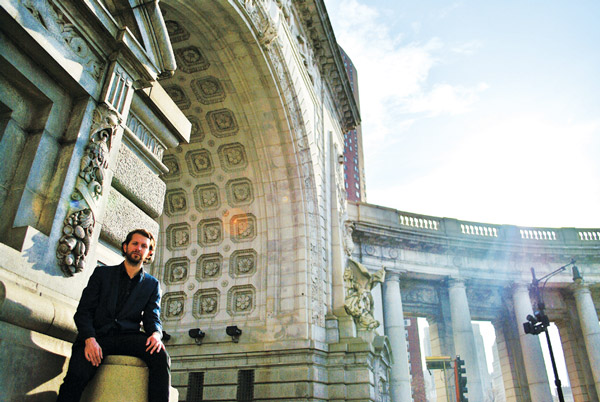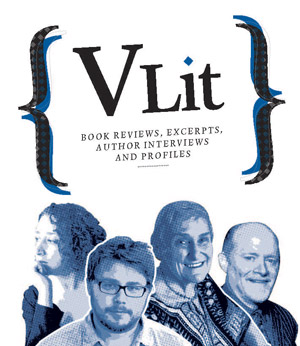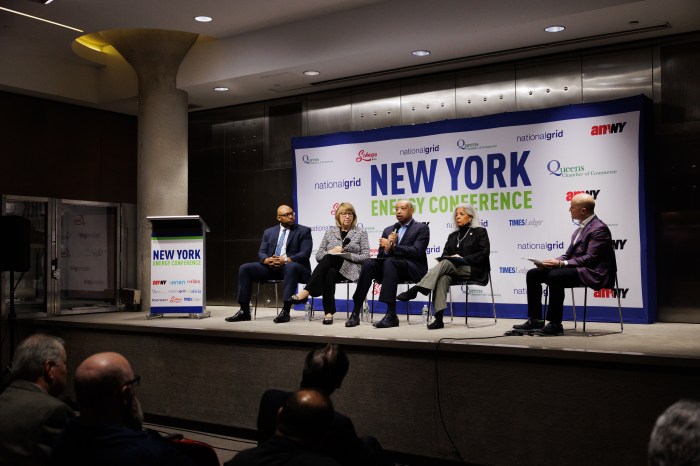
Royal Young at the entrance to the Manhattan Bridge on Canal St.
 BY SARAH HERRINGTON | Royal Young’s entertaining debut memoir, “Fame Shark: Tales of a Lower East Side Hustler” (Heliotrope Books), reads like a New York City neighborhood: fast, gritty, hungry.
BY SARAH HERRINGTON | Royal Young’s entertaining debut memoir, “Fame Shark: Tales of a Lower East Side Hustler” (Heliotrope Books), reads like a New York City neighborhood: fast, gritty, hungry.
Young’s roots run deep on the Lower East Side: His grandparents lived there and it’s where his artistic parents raised him and his younger brother. Yet by the time he’s in his 20s, in the shadow of Downtown Manhattan’s gentrification, he can no longer afford to rent an apartment in his own suddenly chic neighborhood.
In a wry, funny voice, Young chronicles his urban childhood, marked with a lack of money and “crooked streets filled with dangerous wonders.” His provocative sculptor father’s brush with fame haunts Young, long past his father turns social worker. With his psychologist mother, he finds himself in a family with “a history of fixing other people’s problems and hiding our own.”
Young becomes set on achieving notoriety himself. In his eyes, fame seems to offer the promise of escape. How to achieve it obsesses him.
“Celebrity, where the whole great, grasping, unknowably vast world craved a piece of me, seemed like perfect compensation,” Young writes. Even as a boy, he was as “determined as my immigrant ancestors to succeed.”
Born Hazak Brozgold, he legally changes his ethnic-sounding name and fights with his father. Having emerged from lurid public school playground adventures, he enters the fringes of the child-acting world, where he gets bit parts and extra work in independent films and television.
Taking high-strung Manhattan ambition to heart, this is a kid who uses a humidifier for a smoke machine in rehearsals at home. After attending a well-known arts high school and an isolated Vermont college, Young takes classes at The New School. Late at night he coasts the underground clubs and low-highlife fringe lurking below Houston St.
Through sexual, substance and artistic experimentation, he confronts the colliding of cultures and friendships. In the playground of the big city he adores, he rubs elbows with the rich and famous, still wishing he could puzzle out the Rorschach test to his parents’ hearts.
Though by some accounts, he rushed into the wrong crowd, it’s the right one by its proximity to famous people. The more downtrodden Young feels, the more he longs for close-ups and flashbulbs to control his destiny. It’s not quite the Factory, Studio 54 or the Brooklyn hipster domain of Lena Dunham’s “Girls,” but rather the time before and right after 9/11. This is the dawning of Friendster and Myspace, the initial glimmers of social networking and reality TV, the cusp of the age where anyone can cultivate themselves into becoming a virtual star.
As Young takes us onto the edges of his inner chaos, sometimes we’re left uncomfortable but always feel we’re in the hands of an honest, heartfelt narrator. Young proves to be an expert at not just investigating his life but finding the art lurking in every corner of his longing. Perhaps this is the true melding of his family’s lineage, offering the analytic alongside the soulful.
“Fame Shark” becomes a timely exploration of a world increasingly fascinated with celebrity. Six-year-old Hazak was not raised in the ADHD culture of Facebook, “The Real Housewives of New York” or TMZ. But Royal Young lives it. We all live it now.
The itch for recognition, attention and shine is universal. Many of us are secretly obsessed with obtaining some level of recognition, of feeling special, important or at least “liked” daily by thousands of “friends” we’ve never met. Young is brave enough to actually go there, confessing his dreams and dissecting his frustrating failures.
But just as every gritty, glitter-filled party has its ugly morning after, Young’s quest for money, attention and adoration has its disillusion. As he hits bottom, the story gives way to the wisdom of seeing what’s real, what’s been hiding underneath his jaded journey all along. As Young tells us, “If fame forced me to outdo myself, love expected me to improve.” In the end, the reader roots for the 28-year-old Young to feel truly fed beyond the flash of fame.
Ultimately, “Fame Shark” is a New Yorker’s tale. It will resonate with anyone who has had their heart broken by the city and its promises but who is still, impossibly, eternally, in love.
















